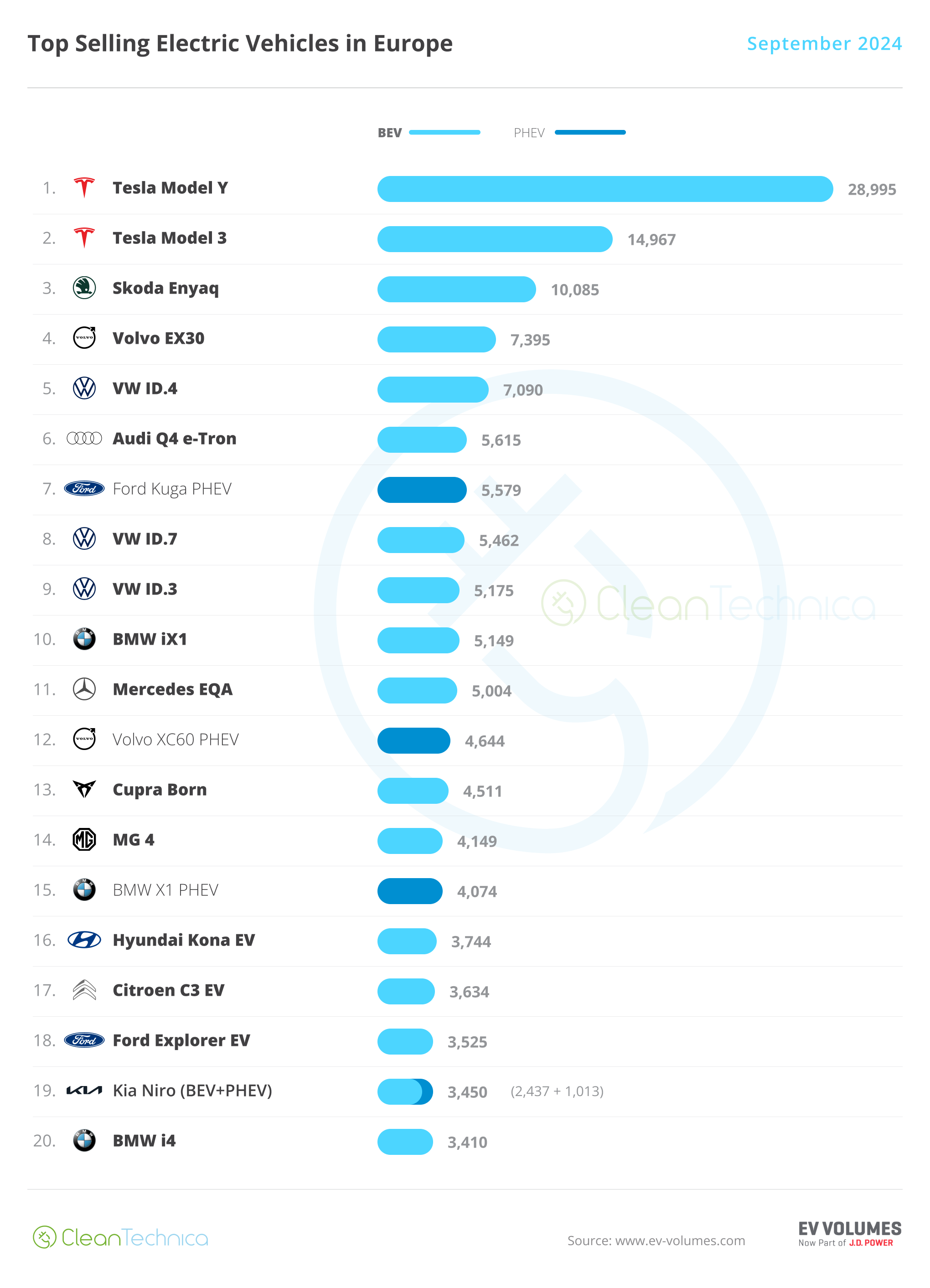Sign up for daily news updates from CleanTechnica on email. Or follow us on Google News!
Thanks to the Inflation Reduction Act and Bipartisan Infrastructure Law, funding has been rolling out constantly for a large variety of cleantech, manufacturing, and infrastructure projects. It’s hard to keep up with all of the announcements and all of the projects and programs. Frankly, there’s too much to keep it all in one’s head. We published all of the US DOE news releases on clean energy and electric vehicle funding for a while, but it was just too much and seemed to get boring to people. However, with a stream of announcements in the past week, I wanted to do a quick roundup of some of these. Here they are:
The U.S. Department of Energy (DOE) today announced the formation of the Tribal Fossil Energy and Carbon Management Working Group, administered by DOE’s Office of Fossil Energy and Carbon Management (FECM). Tribes play a critical role in helping the United States meet its energy security and climate obligations while working to develop their vast energy, critical minerals and materials, and carbon management potential. As part of this collaboration, the Working Group will provide ongoing advice and expertise to DOE on the best ways to assist Tribal decarbonization efforts and utilization of their natural resources. DOE’s technical assistance will help Tribes spur local economic development; provide workforce training for local, high-wage, middle class jobs; and support Tribal technical capacity for fostering energy, economic, and community development opportunities.
As part of the Biden-Harris Administration’s historic Investing in America agenda, the U.S. Department of Energy (DOE) today announced $44.8 million in funding from the Bipartisan Infrastructure Law (BIL) for eight projects that will lower costs of recycling electric drive vehicle batteries and electric drive vehicle battery components, with the long-term aim of lowering vehicle costs. Under President Biden and Vice President Harris’ leadership, more than four million electric vehicles (EVs) have been sold in America—more than double the number bought in all previous years combined. The demand for EVs and stationary storage is projected to increase the size of the lithium battery market five-to ten-fold by the end of the decade, making U.S investments to accelerate the development of a resilient domestic supply chain for high-capacity batteries essential. The projects selected by DOE’s Vehicle Technologies Office will advance research, development, and demonstration of recycling and second-life applications for batteries once used to power EVs. This announcement builds on $92 million in previously announced projects to advance EV battery recycling and expand equitable deployment, supporting President Biden’s goal to have EVs make up half of all vehicle sales in America by 2030.
The U.S. Department of Energy (DOE) and the U.S. Department of Commerce (DOC), as represented by the National Institute of Standards and Technology (NIST), announced a memorandum of understanding (MOU) signed earlier this year to collaborate on safety research, testing, and evaluation of advanced artificial intelligence (AI) models and systems.
This partnership is a key example of the Biden-Harris Administration’s whole-of-government approach to ensuring the safe, secure, and trustworthy development and use of AI. This announcement follows the recent release of the first-ever National Security Memorandum on AI, which designated the U.S. AI Safety Institute (US AISI), which is housed within NIST, as a key hub of the U.S. government’s AI safety efforts and identifies a substantial role for DOE in helping the U.S. government understand and mitigate AI safety risks and improve the performance and reliability of AI models and systems.
In support of the Biden-Harris Administration’s Investing in America agenda, the U.S. Department of Energy (DOE) today released new resources to help American households and home energy efficiency contractors understand how to qualify for thousands of dollars in federal tax credits, made available by the Inflation Reduction Act, for home upgrades. The resources include a Tax Credit Product Lookup Tool to help determine if new equipment is eligible for tax credits; information that walks contractors through key elements of home insulation products that can lower utility bills and qualify for tax credits; and a training module on how contractors can leverage a range of home energy efficiency incentives. By making it easier for households and contractors to know if they qualify for these tax credits, this tool will enable more Americans to access them and to lower their utility bills.
These resources will help drive access to the Energy Efficient Home Improvement Credit, which more than 2.3 million families have already claimed, saving over $2 billion total—an average tax cut of $880 per household—according to the U.S. Department of the Treasury. The Energy Efficient Home Improvement Credit, which is available through 2032, allows households to receive up to $3,200 in tax credits annually for a variety of energy-efficient home improvements. Improving home energy efficiency and upgrading equipment will save homeowners money on utility bills and improve home resilience, and is key to the Biden-Harris Administration’s national clean energy goals.
As part of President Biden’s Investing in America agenda, the U.S. Department of Energy (DOE) announced today that Colorado is launching its first phase of the federal Home Energy Rebate programs, supported by the Inflation Reduction Act. Colorado is launching the Home Electrification and Appliance Rebates (HEAR) portion of the rebate program to lower energy bills by lowering costs for energy efficiency improvements.
As part of the Biden-Harris Administration’s Investing in America agenda, the U.S. Department of Energy (DOE) today announced $149.87 million for 67 energy conservation and clean energy projects at Federal facilities across 28 U.S. states and territories and six international locations. Funded by President Biden’s Bipartisan Infrastructure Law, the selected projects will advance the adoption of cleaner, more cost-effective technologies to reduce pollution, improve air quality, create good-paying jobs, and slash the Federal Government’s carbon footprint. Today’s announcement represents the second and final installment of the $250 million Assisting Federal Facilities with Energy Conservation Technologies (AFFECT) grant program, which will help the Federal Government achieve President Biden’s goal of net-zero greenhouse gas emissions from all Federal buildings by 2045. Today’s AFFECT announcement will be bolstered by leveraging nearly $1.6 billion in private capital and Federal funds, corresponding to a total investment of $13.50 for every Federal dollar spent—maximizing value for taxpayers while also helping tackle the climate crisis.
DOE and NNSA Advance Historic Effort to Harness AI National Security Mission
This week, the White House issued the first-ever National Security Memorandum (NSM) on Artificial Intelligence (AI). Recognizing that advances at the frontier of AI will have significant implications for national security and foreign policy, the Department of Energy (DOE) and the National Nuclear Security Administration (NNSA) are leading work to help understand and mitigate the risks associated with AI systems, improve the performance and efficiency of AI systems, and strengthen the U.S. AI ecosystem.
In support of the Biden-Harris Administration’s Investing in America agenda, today the U.S. Department of Energy (DOE) announced that 49 states, 5 territories, 254 Tribal Nations, and the District of Columbia have received a combined total of $473.6 million in fiscal year (FY) 2024 Grid Resilience State and Tribal Formula Grants to modernize the electric grid to reduce the impacts of extreme weather events while also ensuring the reliability of the power sector. Supported by the Bipartisan Infrastructure Law and administered by DOE’s Grid Deployment Office, the Grid Resilience Formula Grant program is designed to strengthen America’s power grid against wildfires, extreme weather events, and other natural disasters that are exacerbated by the climate crisis. This funding will deliver on the Biden-Harris Administration’s goals to support communities in accessing affordable, reliable, and clean electricity.
Those are announcements just from the past week. And many weeks are like this. Simply put, our country is investing in clean energy, grid infrastructure, EV infrastructure, and future tech solutions on a massive scale. It’s a bit like the old Apollo moonshot program, a famous and revered part of American history.

Chip in a few dollars a month to help support independent cleantech coverage that helps to accelerate the cleantech revolution!
Have a tip for CleanTechnica? Want to advertise? Want to suggest a guest for our CleanTech Talk podcast? Contact us here.
Sign up for our daily newsletter for 15 new cleantech stories a day. Or sign up for our weekly one if daily is too frequent.
CleanTechnica uses affiliate links. See our policy here.
CleanTechnica’s Comment Policy




